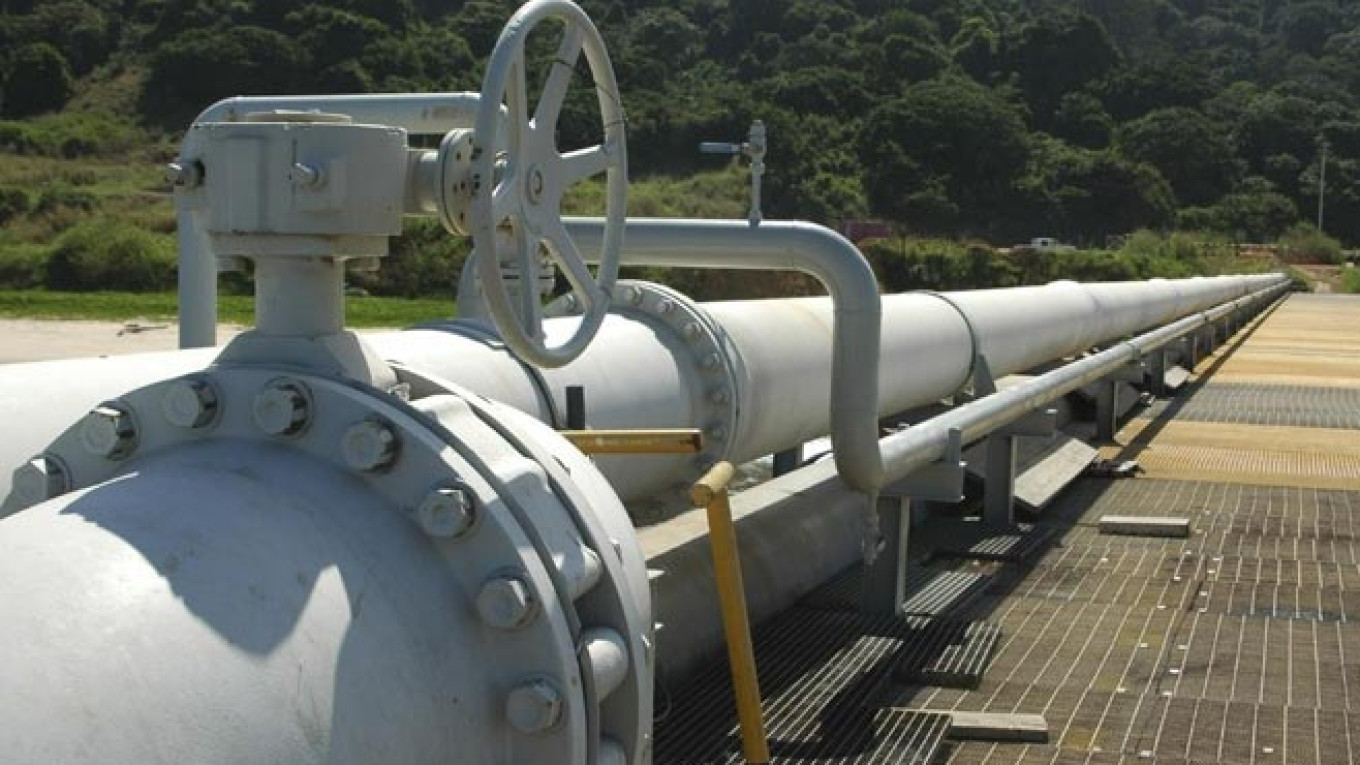Three weeks ago, just as Russia was in the early stages of annexing Crimea, I wrote in this space that the most strategic move the West could take against President Vladimir Putin would be to help lower world oil and gas prices. On Wednesday, U.S. President Barack Obama announced that Washington was prepared to supply gas to Europe in place of Russia.
After Russia unleashed its "gas war" against Ukraine in 2006, Europe realized that the Kremlin was an unreliable supplier and that it used gas as a weapon, not a commodity. Therefore, even before the advent of the shale gas revolution, Europe began making every effort to reduce its dependency on Russian gas. As a result, from 2006 to 2013, the share of Russian gas in Europe's overall consumption fell from 39 to 25 percent.
Actually, Russia's most hawkish patriots suggested that Moscow stop supplying Europe gas and sell it to China instead.
To get an idea of whether Russia could really make good on such a threat, consider the following: In 2013, China extracted only 200 million cubic meters of shale gas, but it expects to extract 6.5 billion cubic meters in 2015 and up to 60 billion to 100 billion cubic meters by 2020.
What's more, Beijing built a 6.4 thousand-?kilometer gas pipeline from Turkmenistan to China at a cost of $6.5 billion, or about $1 million per kilometer. By comparison, Gazprom built the Bovanenkovo-Ukhta pipeline at a cost of $18 million per kilometer, or 18 times higher than China's.
Shale gas production in the U.S. now costs from $100 to $130 per thousand cubic meters. Chinese extraction costs probably will not exceed that figure, even though its gas generally is located much deeper underground. Although the exact figure is a commercial secret, China probably pays Turkmenistan about $100 to $140 per thousand cubic meters of gas. In other words, between Turkmenistan and its own shale deposits, China has plenty of inexpensive gas to cover its needs.
Throughout recent years, Gazprom never reached an agreement on price to begin selling gas to China — and that was even before Beijing began exploiting its own shale gas and buying from Turkmenistan.
In other words, China is unlikely to agree to buy Gazprom gas for more than $100 to $120 per thousand cubic meters — that is, for less than it costs on the Russian domestic market.
The cruel irony is that ever since 2005, when officials signed the contracts for the Nord Stream project, the Kremlin's entire policy toward Europe has been based on gas — that is, on gas as a weapon.
Gas really is a weapon, but only in the hands of a highly sophisticated buyer, not in the hands of a "petrocrat" who exports oil and gas and imports everything else. In the end, the buyer can always find a new supplier for what has become a highly politicized commodity. But the seller — at least in the case of Russia — cannot even provide gas to its friend and ally, Venezuela.
I suspect that the Kremlin is trying to divide Ukraine primarily for fear that Ukrainian shale gas, which is scheduled to start production late this year, will weaken Russia's perceived gas weapon not only on the Ukrainian market, but even on the European market.
It seems that Putin's actions have actually helped hasten the very scenario that he had been scheming so hard to prevent.
Yulia Latynina hosts a political talk show on Ekho Moskvy radio.
A Message from The Moscow Times:
Dear readers,
We are facing unprecedented challenges. Russia's Prosecutor General's Office has designated The Moscow Times as an "undesirable" organization, criminalizing our work and putting our staff at risk of prosecution. This follows our earlier unjust labeling as a "foreign agent."
These actions are direct attempts to silence independent journalism in Russia. The authorities claim our work "discredits the decisions of the Russian leadership." We see things differently: we strive to provide accurate, unbiased reporting on Russia.
We, the journalists of The Moscow Times, refuse to be silenced. But to continue our work, we need your help.
Your support, no matter how small, makes a world of difference. If you can, please support us monthly starting from just $2. It's quick to set up, and every contribution makes a significant impact.
By supporting The Moscow Times, you're defending open, independent journalism in the face of repression. Thank you for standing with us.
Remind me later.


